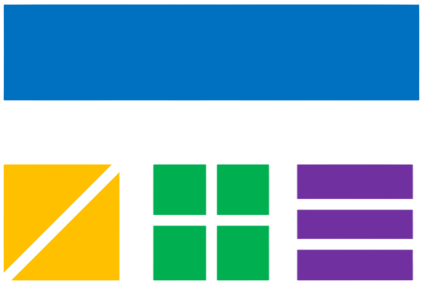Mortgage Calculator Information
What is a Mortgage?
Mortgage Calculator helps you estimate your monthly home loan payments, total interest, and amortization schedule. Enter your loan amount, interest rate, term, and down payment to see a detailed breakdown. This tool is ideal for home buyers, refinancers, and anyone budgeting for a home purchase.
How Mortgages Work
A mortgage is a loan used to buy real estate. The lender provides funds to purchase the property, and you repay the loan (principal) plus interest over a set term, usually 15–30 years. Each payment reduces your balance and covers interest.
- Principal: The amount borrowed to buy the home.
- Interest Rate: The yearly cost to borrow, expressed as a percentage.
- Term: The length of the loan, typically 15 or 30 years.
- Down Payment: The upfront amount you pay, reducing the loan size.
- Amortization: Paying off the loan in equal installments over time.
- Escrow: An account for property taxes and insurance payments.
How Monthly Payments Are Calculated
Monthly payments are based on the loan amount, interest rate, and term. The standard formula for a fixed-rate mortgage is:
- P = Monthly payment
- L = Loan amount (principal)
- r = Monthly interest rate (annual rate / 12 / 100)
- n = Number of monthly payments (term)
Example: $300,000 loan, 4% interest, 30 years
Monthly Payment: $1,432
Types of Mortgages
Common Mortgage Types
Fixed-Rate Mortgages
- Interest rate stays the same for entire term
- Predictable monthly payments
- Higher initial rates than ARMs
- Best for long-term homeowners
- 15, 20, or 30-year terms common
Adjustable-Rate Mortgages (ARMs)
- Rate may change after initial period
- Lower initial rates than fixed
- Payments can increase over time
- Good for short-term ownership
- 3/1, 5/1, 7/1 ARMs common
Government-Backed Loans
- FHA Loans: Lower credit requirements, 3.5% down payment, mortgage insurance required
- VA Loans: For veterans and service members, often no down payment required
- USDA Loans: For rural areas, low-income borrowers, often no down payment
- Conventional Loans: Not government-backed, typically require 5-20% down
Down Payment Considerations
Down Payment Impact
Larger Down Payment
- Lower monthly payments
- Less total interest paid
- May avoid PMI
- Better interest rates
- More equity upfront
Smaller Down Payment
- Lower upfront costs
- Higher monthly payments
- PMI may be required
- More total interest paid
- Less equity initially
Private Mortgage Insurance (PMI)
- Required when down payment is less than 20%
- Protects the lender, not the borrower
- Typically 0.5% to 1% of loan amount annually
- Can be removed when equity reaches 20%
- FHA loans have MIP (similar to PMI)
- VA loans don't require PMI
Tips for Home Buyers
- Check your credit score and improve it if possible before applying
- Save for a larger down payment to reduce your loan and interest
- Compare offers from multiple lenders
- Consider total costs: taxes, insurance, HOA fees, and maintenance
- Get pre-approved before house hunting
- Understand closing costs (typically 2-5% of home price)
- Consider your long-term plans when choosing loan terms
- Factor in potential rate increases with ARMs
Frequently Asked Questions (FAQ)
Q: How much should I put down on a house?
A: 20% is common and avoids PMI, but some loans allow as little as 3% down. Consider your financial situation and long-term goals when deciding.
Q: What is PMI?
A: Private Mortgage Insurance is required if your down payment is less than 20%. It protects the lender, not you, and adds to your monthly payment.
Q: Can I pay off my mortgage early?
A: Yes, but check for prepayment penalties. Early payoff saves on interest and builds equity faster. Consider refinancing if rates drop significantly.
Q: What is an escrow account?
A: An account managed by your lender to pay property taxes and insurance on your behalf. The lender collects these costs with your monthly payment.
Q: Should I choose a 15 or 30-year mortgage?
A: 15-year loans have higher payments but less total interest. 30-year loans have lower payments but more total interest. Consider your budget and goals.
Important Disclaimers
Disclaimer: This calculator provides estimates for educational purposes only. Actual mortgage terms, rates, and payments may vary significantly based on your credit score, income, property location, and lender requirements.
Always consult with a qualified mortgage professional or lender before making decisions about home loans. This calculator does not account for all possible fees, closing costs, or special circumstances that may apply to your specific situation.
Interest rates and terms are subject to change. Actual loan approval and terms are subject to lender underwriting and may differ from calculator estimates.
